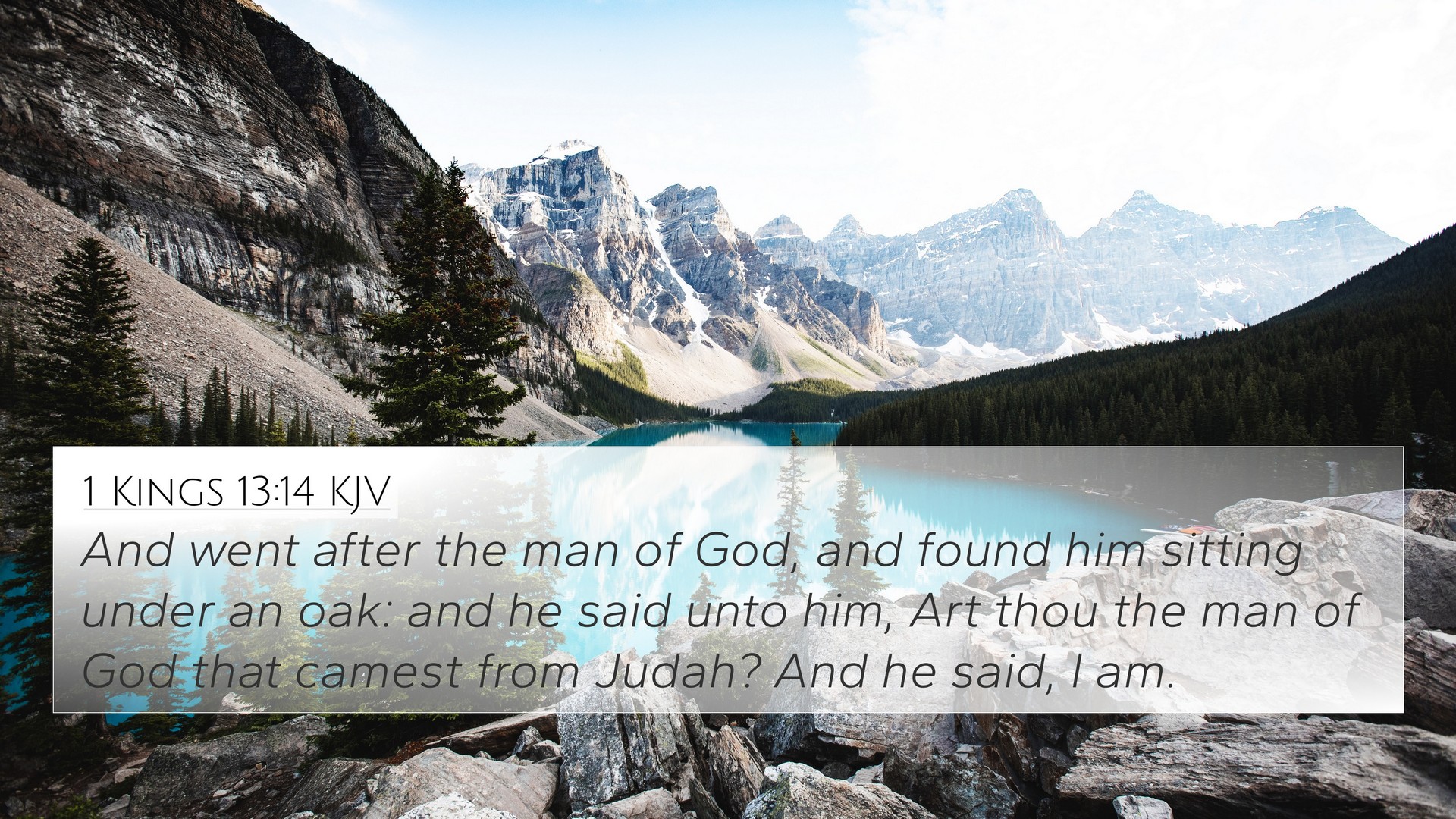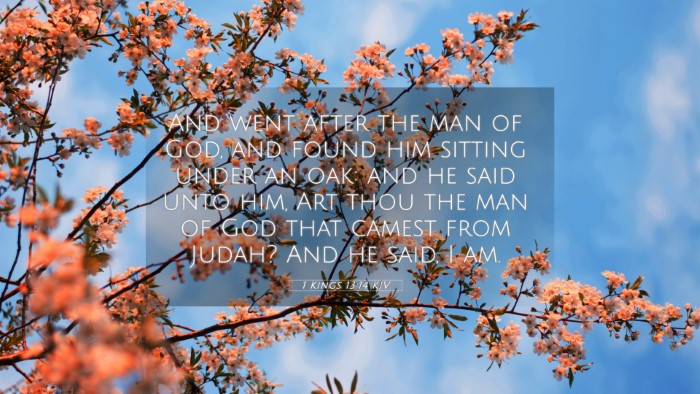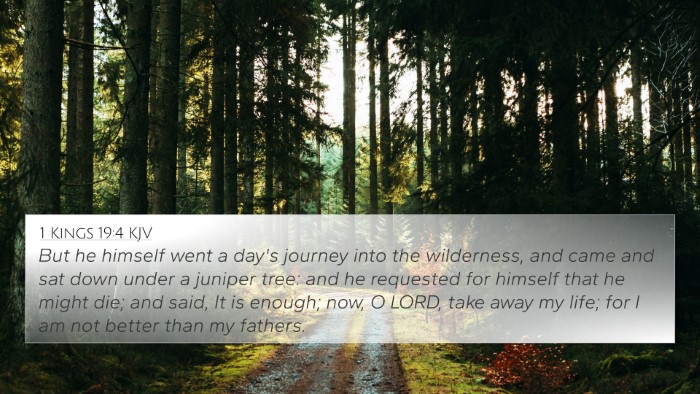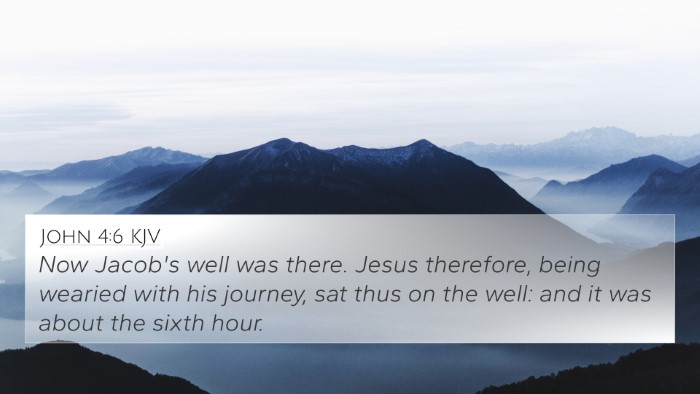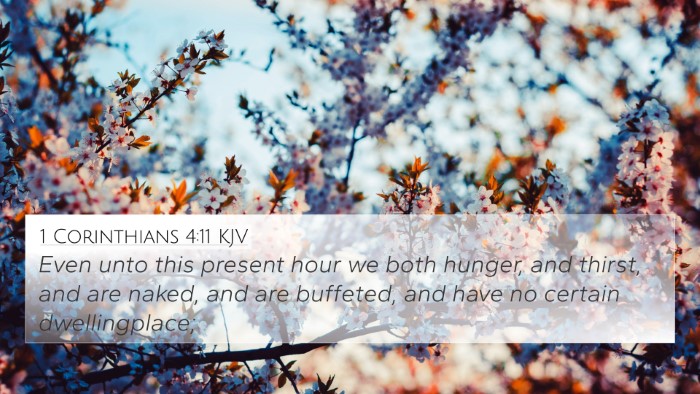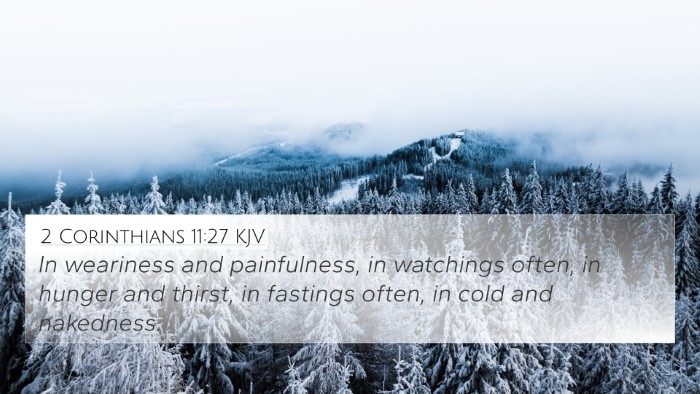Meaning and Interpretation of 1 Kings 13:14
Verse Reference: 1 Kings 13:14 - "And went after the man of God, and found him sitting under an oak: and he said unto him, Art thou the man of God that camest from Judah? And he said, I am." This passage provides rich insights into the themes of obedience, deception, and the prophetic calling.
Contextual Background
Historical Context: This verse is situated within the narrative of the divided kingdom of Israel. The 'man of God from Judah' had just delivered a prophecy against the altar in Bethel, symbolizing the Lord’s judgment against Jeroboam’s idolatry. Understanding the pressing political and spiritual climate enhances the interpretation of this encounter.
Summary of Commentaries
Matthew Henry's Commentary
Henry emphasizes the significance of being true to one's divine calling. The man of God represents the necessity for faithfulness amidst trials. His encounter under the oak signifies a moment of vulnerability where he could easily be led astray. Henry warns against the dangers of complacency and the importance of discernment in spiritual affairs.
Albert Barnes' Notes
Barnes notes the authenticity of the man of God’s identity and the implications of such recognition. The questioning of his authority serves as a reminder to the reader that true prophets of God will often face tests of their faith and mission. His response, 'I am', indicates acceptance of his role but also opens the door for subsequent events that lead to disobedience, underscoring prophetic fallibility.
Adam Clarke's Commentary
Clarke delves into the narrative structure and the symbolism present in this scene. He highlights how the man of God’s presence under an oak tree can symbolize both shelter and a place of decision, revealing the dual nature of divine protection and the challenge of remaining steadfast. This moment serves as a key turning point that showcases the tension between divine instruction and human agency.
Thematic Connections
This verse connects with various themes found throughout scripture:
- Obedience to God's Call: The man of God initially obeys, but the ensuing events will test his commitment.
- The Nature of Prophetic Ministry: The phrase "I am" evokes recognition of one's identity and mandate as a servant of God.
- Spiritual Vulnerability: Sitting under an oak signifies a place of rest but also a moment that can lead to spiritual deception.
Cross-References
1 Kings 13:14 has several related verses that deepen understanding through scriptural cross-referencing:
- Jeremiah 5:31: This passage discusses the failure of prophets and the need for true voice from God.
- 1 Samuel 15:22: Explores the concept of obedience over sacrifice, highlighting prophetic accountability.
- Ezekiel 3:17: Talks about the responsibilities of the watchman, paralleling the man of God’s role.
- Matthew 7:15: Warns of false prophets, emphasizing the need for discernment in the prophetic.
- 2 Timothy 4:3-4: Discusses the turning away from sound doctrine, relevant to the situation at Bethel.
- Hebrews 13:17: Advises submission to leaders, connecting to the man of God’s authority.
- Romans 1:18-20: Reveals the consequences of turning from God’s truth, relevant to Jeroboam's context.
Applications and Lessons
This verse, along with its surrounding context, teaches valuable lessons about faithfulness, the importance of adhering to divine instruction, and the risks of falling prey to deception. It serves as a reminder to be vigilant in our spiritual walk and aware of potential influences that may lead us away from the truth.
Conclusion
1 Kings 13:14 presents a profound insight into the nature of prophetic ministry and the challenges faced in remaining faithful to God's calling. The reflections from Matthew Henry, Albert Barnes, and Adam Clarke provide a holistic understanding that invites deeper exploration of the implications of obedience and vigilance in one’s faith journey.
